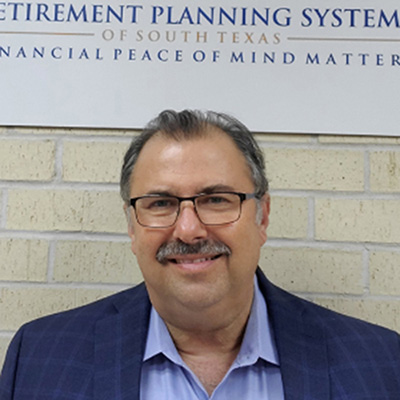
Article Library

Charles Cardenas
RPS Retirement Planning Systems of South Texas
212 W 3rd St
Weslaco, Texas 78596
charles@rpsstx.com
(956) 463-6862
Shifting From Saving to Spending in Retirement
Economic challenges often prompt individuals to seek ways to bolster their financial health, particularly concerning retirement savings. Retirement signifies a profound life change, transitioning from the long-established routines of work and saving to enjoying a more leisurely lifestyle, where the focus shifts to spending the funds accumulated over the years.
Embracing the New Retirement Mindset
Retirement offers the chance to adopt exciting new routines, such as leisurely mornings, enjoying breakfast at the table, and vacationing without the constant worry of work emails. However, one of the most significant changes is transitioning from saving diligently for retirement to spending those hard-earned savings. This shift in mindset may be difficult, but it’s essential to remember that these funds were saved precisely for this phase of life.
Assessing Your Risk Tolerance
Determining how much risk is appropriate for your retirement portfolio is a highly individual decision. Factors such as your target retirement age, financial goals, and personal circumstances play a crucial role. Traditional investment advice often suggests shifting towards safer, fixed-income investments as retirement approaches. However, overly conservative investments like bonds may not offer sufficient growth to sustain a comfortable retirement.
While reducing equity exposure might seem like a safer choice, it may limit the potential growth of your retirement assets, posing its own set of risks. Balancing risk requires careful thought and preparation. Although traditional assets may have been practical during your accumulation years, it’s crucial to consider alternative solutions during the spending phase. Collaborating with a financial professional to explore various financial products, including annuities, may help provide confidence in your retirement plan.
Balancing Risk Tolerance with Risk Need
Many investors face a disconnect between their perceived risk tolerance and the actual risk needed to achieve their retirement goals. The fear of losing your hard-earned nest egg might prevent you from capitalizing on potential market gains, potentially hindering your ability to grow your retirement savings adequately.
Underinvesting in equities, for example, could lead to falling short of your retirement goals. It’s vital to bridge the gap between the risk level you think you need and the level necessary to achieve your desired retirement lifestyle. Working with a trusted financial professional may be instrumental if your current strategy needs reevaluation.
Seeking Growth and Protection
Retirees often desire the dual benefits of protecting their nest egg from losses while also seeking growth. Long-term retirement products, such as annuities, may offer a balance of both. There are differing types of annuities, so finding a trusted financial professional to help determine which is best for your circumstances. Annuities allow for a diversified portfolio within the annuity, aligning with various financial objectives. Additionally, they may offer options like guaranteed minimum accumulation benefits, providing market participation along with principal protection in case of market downturns.
Ensuring a Steady Income
A guaranteed income stream in retirement is crucial for covering essential expenses. Income annuities may be an attractive solution, offering steady, predictable income unaffected by market volatility. While Social Security plays a significant role, it often isn’t sufficient on its own. With traditional pensions becoming rarer, investing a portion of your portfolio in an income annuity may ensure your income needs are met. This base of guaranteed lifetime income also allows retirees to invest the remainder of their portfolio more aggressively.
Addressing Retirement Risk Concerns
Retirement introduces financial risks that may be more complex than those during the accumulation phase. Longevity, sequence of returns, and inflation risks may undermine a poorly thought-out strategy and jeopardize your desired lifestyle. Understanding and addressing these risks is essential for a secure retirement. Knowing your objectives and seeking sound financial advice may help you implement strategies that mitigate these risks and support your overall financial goals.
Many people have learned about the power of using the Safe Money approach to reduce volatility. Our Safe Money Guide is in its 20th edition and is available for free.

Best Tips
For A Worry-Free
Retirement
The Safe Money Guide